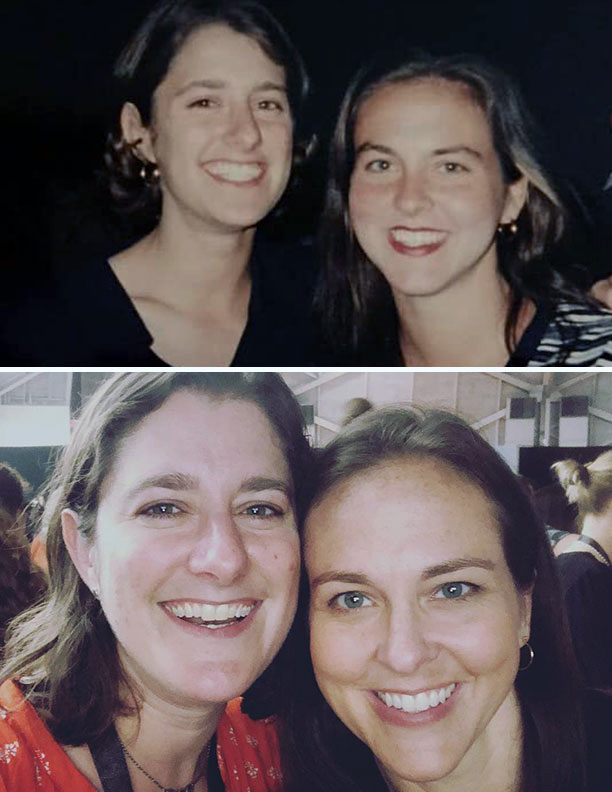Essay: Reunions in the Age of Social Media

The knoll was our lifeline: Whenever we were separated by the throngs of bodies at the Fifth reunion, we knew we could find each other again by meeting up at our spot, every hour, on the hour. We met no matter what, because we knew if we missed a meeting, it was over — we’d never find each other again, and then who would walk with us to the Wa at 3 a.m. and debrief the events of the evening? It would be a bona fide tragedy.
Jill is still my favorite Reunions wingman. But Reunions in the age of technology and social media is a different experience, for better and for worse, than it was when I was 21, 25, 30, or even 35.
When I was a young alum, I planned my Reunions “elevator pitch” while en route to campus each May. I got good at deftly explaining my location, job, and relationship status in a pithy soundbite that I hoped would convey that I was diligently putting my Princeton education to good use and meeting my goals progressively, as per the unwritten Ivy League contract that sometimes we overachievers believe exists.
I haven’t needed an elevator pitch since my Tenth reunion, thanks to Facebook. As more and more of my Tiger brethren joined the social-media platform, I found that my extroverted tendencies (read: I overshare) meant that I didn’t need to make Reunions small talk anymore.
Everyone from my nearest and dearest friends to mere acquaintances to Princetonians I “friended” just because I recognized their names were, in fact, all caught up on the basic details of my life. They not only knew where I was living and how many children I now had, but also that one of those children had a stomach virus the week before and that I needed restaurant recommendations for a trip to New York the following month.
This can be a great thing. Social media has allowed me to get to know classmates and other Princetonians whom I never had the chance to meet or form friendships with on campus. Facebook groups and pages also help round up classmates for committees and input and, I believe, encourage more Tigers to invest in going back.
They not only knew where I was living and how many children I now had, but also that one of those children had a stomach virus the week before and that I needed restaurant recommendations for a trip to New York the following month.
What I think of as the “Facebook factor” has also meant that I could skip the pleasantries and have more meaningful and genuine conversations with classmates I only get to hug and see face-to-face once every five years or so.
Now, instead of the drive-by hug and hi-how-are-you-oh-my-gosh-what-have-you-been-up-to-whoops-see-you-later conversations I had in my early Reunions, I can make eye contact with friends from across the courtyard and know that they know I know — about the divorce, about the job change, about the recent diagnosis. When I ask them how they are, they know I am asking them with this context in mind. In that way, social media has deepened and enhanced my Reunions experiences.
On the other hand, sometimes all this superficial social-media familiarity means I have less to say when I bump into people on McCosh Walk. I have also had a few surreal moments when it became clear that some of my Facebook friends who read more than they post on the platform knew much, much more about me than I knew about them. Awkward.
Jill and I no longer need a meeting spot and hourly check-ins at Reunions; we have a Reunions app on our phones, text messaging, and — when all else fails — Find My Friends. We can check in to P.J.’s or Hoagie Haven so our whole Facebook feed knows we’re reliving our youth for the weekend.
I wish I had an iCloud archive of relics of my years on campus now. So no judging if you see me clumsily taking a selfie in front of our Reunions barricades; when it shows up in my Facebook memories for years to come, it will remind me of how little changes — even as everything does — at the best old place of all.














No responses yet